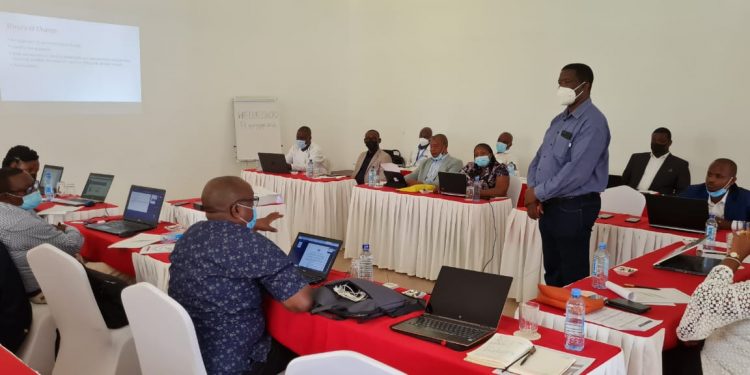A regional study carried out to analyse the issues affecting uptake of the Authorised Economic Operators (AEOs) has issued a raft of recommendations that the regional countries should implement to increase its uptake and position East African in a competitive position in the global arena.
There is a need to increase resources for awareness and sensitization to popularize the scheme among the industry players. This should be done through regular updates with the activities in the program’s communication and visibility plan.
This should include deployment of a robust communication plan using a variety of channels, organizing large-scale activities to bring more economic operators together and continuous engagement with AEOs to find out what benefits they are not getting.
There is also a need to address mistrust and suspicions to ensure a common understanding and appreciation of the scheme. Measures proposed to enhance the administrative framework for the regional AEO program include building of an all-inclusive forum to spearhead the program’s implementation.
There is also a need to establish a multi-task team to vet applicants and properly educate the facilitators of the scheme. Currently, it is only customs that are vetting the agencies, whereas the benefits are supposed to cut across the entire logistics chain. Application process should also be made simple and flexible.
Legislation of self-regulation and uniform applications process for revenue authorities could improve uptake, the study recommends.
Other recommendations include getting the EAC more involved in ensuring joint strategies and uniformity, especially to get the Member States to commit to providing the promised benefits fully. Address staff issues in customs- shortage and training would also help.
Measures to increase participation of MSMEs include financial support to meet AEO eligibility requirements and build requisite infrastructure. Capacity building should also be enhanced to professionalize management and holistic strategy to develop the competitiveness of the SME operators.
Expansion of basket of benefits to reflect socio-economic situation of each EAC Partner State, certainty that the promised benefits will be provided and simplification of application process would boost uptake.
Asia-Pacific Economic Cooperation (AEPC) has vita lessons. There is broad participation by small and medium enterprises in AEO programs. Stakeholders are involved intensely, and an effective communication is to pace to help in the understanding of the benefits. There are also mutual recognition agreements among economies and of other government agencies, which have made the AEO programme a tremendous success.
In India, there is a liberalised MSME AEO Package initiative specifically for small enterprises. The country also allows MSMEs who have filed a minimum of 10 Customs clearance documents in one year and who have a clean compliance record over two years to apply for the scheme. The documentary requirements have been simplified.
In the Netherlands, a study by Deloitte in 2013 found out that businesses lamented they had experienced increased inspections by customs rather than a decrease.
The costs of meeting the AEO requirements were viewed as disproportionate to the benefits. The study called for tangible and measurable benefits accompanied by simplified customs procedures where the economic operator was in control.
Another important observation was the need to install/upgrade IT infrastructure. The findings were critical in informing Netherlands’ AEO terrain reforms and transforming the country into one of today’s best practices.





